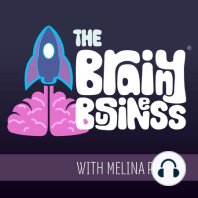54 min listen

68. Counterfactual Thinking: Why We ‘What If’ And ‘If Only’ (A Behavioral Economics Foundations Episode)
FromThe Brainy Business | Understanding the Psychology of Why People Buy | Behavioral Economics
68. Counterfactual Thinking: Why We ‘What If’ And ‘If Only’ (A Behavioral Economics Foundations Episode)
FromThe Brainy Business | Understanding the Psychology of Why People Buy | Behavioral Economics
ratings:
Length:
41 minutes
Released:
Oct 4, 2019
Format:
Podcast episode
Description
I love the concept of counterfactual thinking. In fact, it was one of my favorite things to read about in school – I find it to be fascinating in many ways, but perhaps it’s because it relates to something we all do, all the time, and don’t really stop to think about why. And more importantly – we don’t stop to think about if it is doing us harm or good, and how we might control this natural state of the brain. Counterfactual thinking is a fancy way to say “what if..” or “if only...” Maybe you have memories of your childhood or choices you made, and then think that with a little more discipline (or focus or effort or training) you could have been an actor or doctor or run that marathon. We all have regrets on actions taken or not taken, and these are represented in our brains via counterfactual thinking. This may seem like a hurdle to overcome, but it is actually central to being a human being – our emotions and the way we think - and can be a VERY good thing (listen to learn the 1 important step to shift from vicious cycle to goal-achieving awesomeness). Studies have found counterfactual thinking happens across all cultures and as early as 2 years old. CLICK HERE FOR YOUR FREE DOWNLOAD! Show Notes: [02:42] Counterfactual thinking is a fancy way to say "what if" or "if only." [04:05] Counterfactual thinking can be very useful for setting and accomplishing goals. [04:20] There are different types of counterfactuals, and they do different things. When you are thinking about a better alternative it is called an upward counterfactual, and those with worse alternatives are downward counterfactuals. [04:57] Upward counterfactual are tied very closely with regret. Anticipated regret (or prefactuals) will be the focus of a future episode. Regret and counterfactual thinking really go hand in hand. [05:17] The first theoretical explanation of counterfactual thinking came from Kahneman and Miller back in 1986, and was called norm theory. [05:39] When looking at counterfactuals consider if they are omissions or commissions, ruminations or undoings, usual or extreme, actions of ourselves or others, and if they cause negative impact or how they can be used for good. [06:29] An omission is when you wish you had acted. A commission is wishing you had not taken an action. [07:10] A rumination is where you think about what happened, but you don’t have any thoughts about how things might have been different. Undoing is where the counterfactual “if only” or “what if” comes into play – what might have been if you had or hadn’t done something. [08:40] Usual or extreme: the way you do your counterfactual thinking will be different if it was coming in through the same door as you always do versus coming in a way you never do. [11:24] Ourselves or others. Whose actions the counterfactuals are targeted at. We tend to focus our counterfactual thoughts on ourselves – what we coulda shoulda woulda done – more often than we look at others. [12:24] Distress and anxiety. While there is a healthy side to counterfactuals, when used in excess it can be really damaging to the psyche. [14:25] Thinking and counterfactualizing doesn't change what happened. [16:02] Putting too much into ‘what if’ and counterfactual thinking can often make a mountain out of a molehill. It can be unhealthy and cause you more harm than simply letting it go and moving on would do. [16:12] Your conscious brain can only focus on so much and the brain gets what it expects. [18:16] A study was published in 1995 in Personality and Social Psychology Bulletin on counterfactual thinking and undoing traumatic life events. [20:58] A study found that 80% of those that lost loved ones in a car accident had ruminative thoughts of the event, and 59% said they had thought about the events leading up to the accident within the past month. [21:49] Over half of the respondents were actively undoing the event in their heads – having counterfactual thoughts – within the last month, for an event from 4-
Released:
Oct 4, 2019
Format:
Podcast episode
Titles in the series (100)
2. The Top 5 Wording Mistakes Businesses Make by The Brainy Business | Understanding the Psychology of Why People Buy | Behavioral Economics